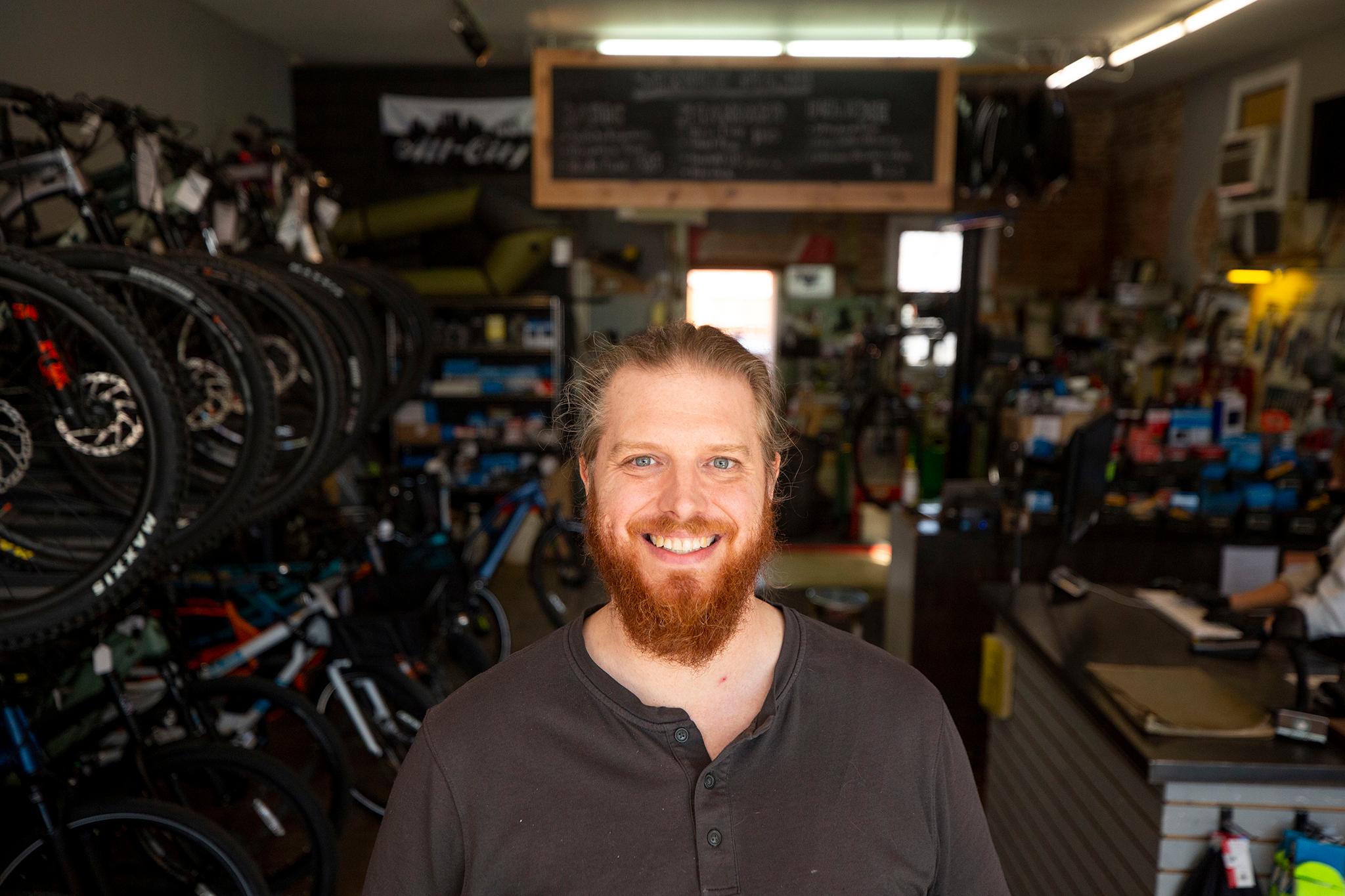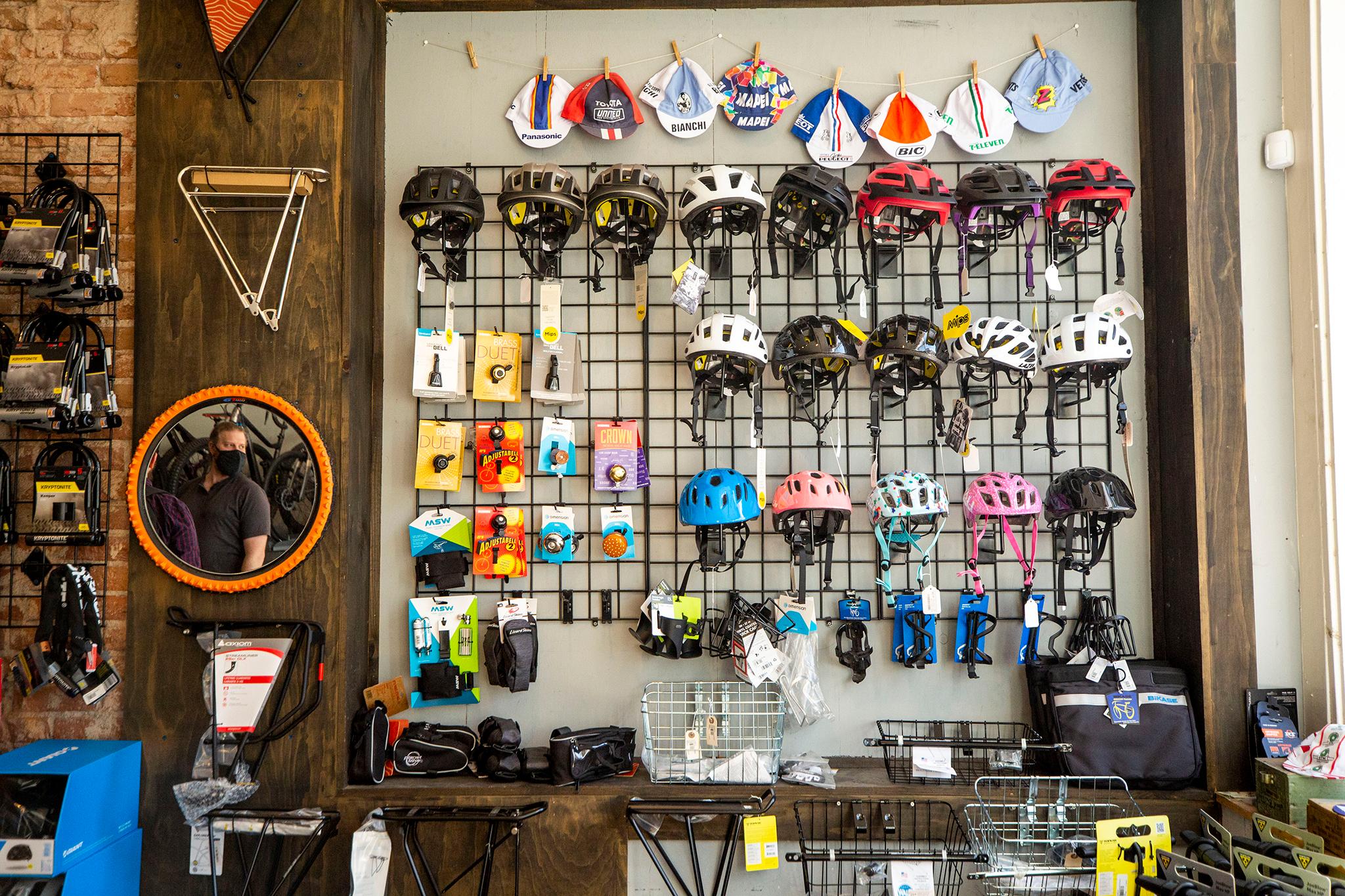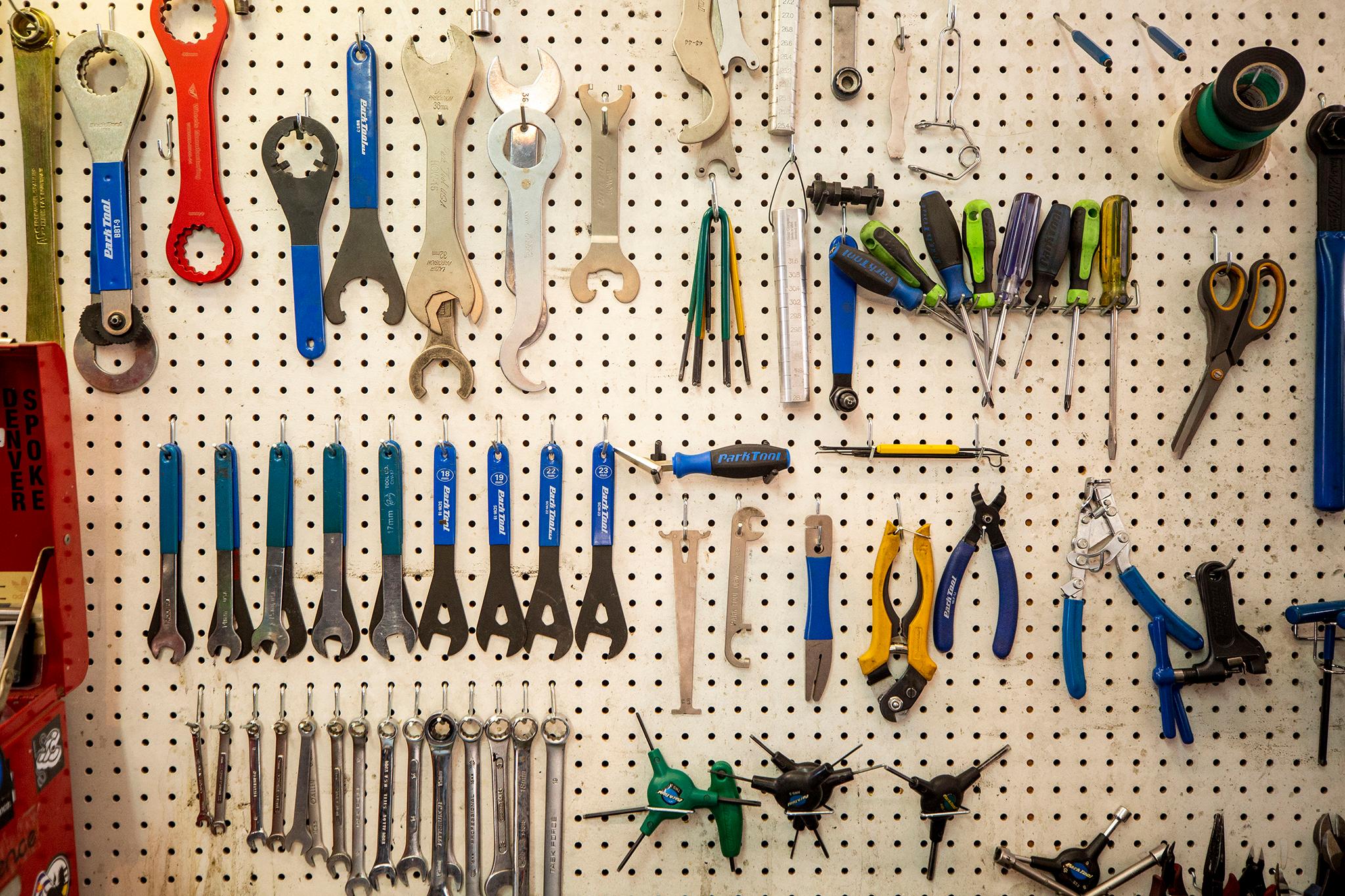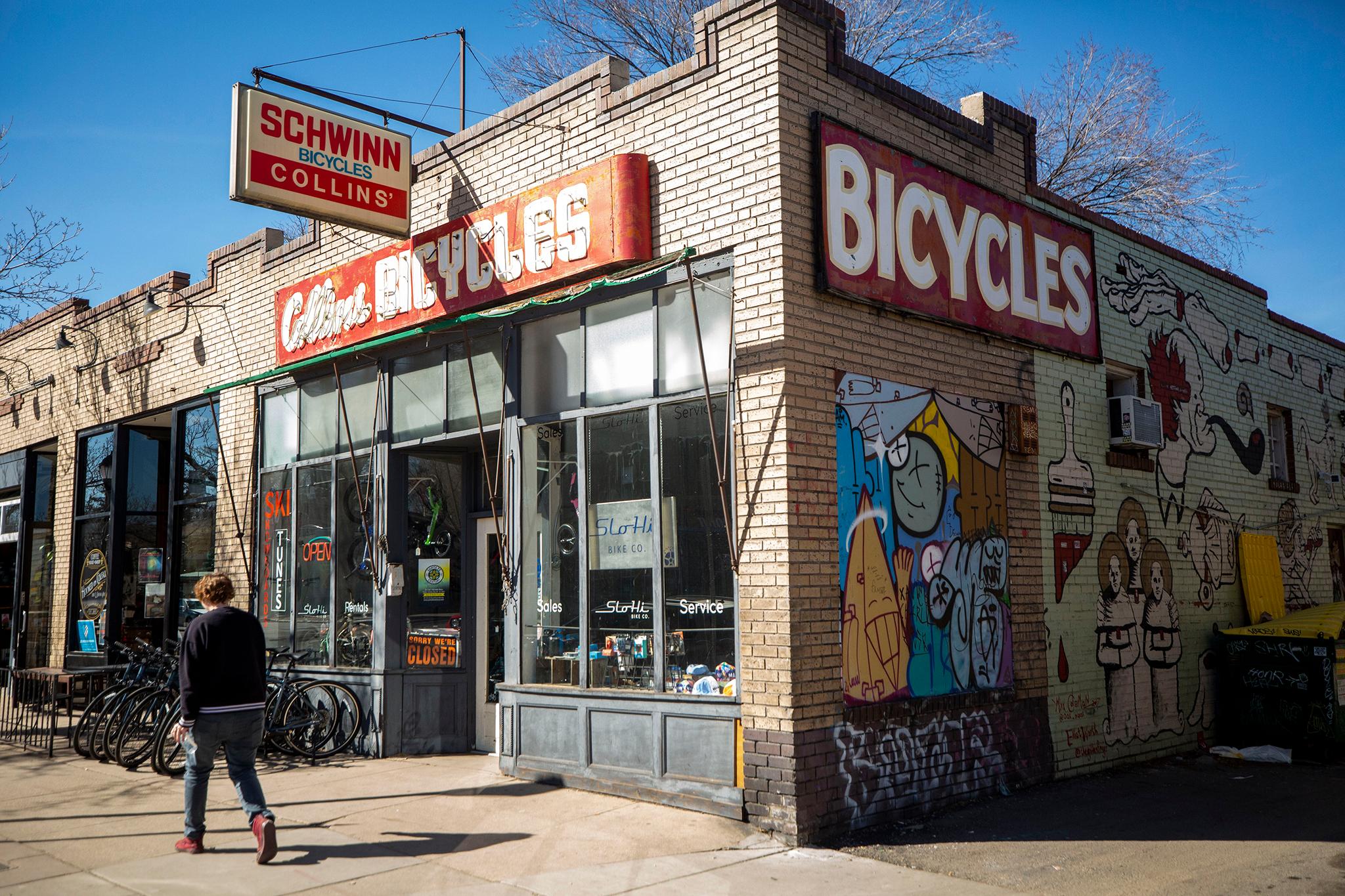In early March, Turin, which takes pride in being Denver's oldest bike shop, announced it would be going out of business as soon as all its gear was sold. Denverite readers wrote in arguing that the claim to fame -- oldest bike shop in the city -- actually belongs to Collins' Bicycles, at 3217 E. Colfax Ave., which opened in 1934 and survived over 80 years.
The Collins' Bicycles sign is still up outside the City Park neighborhood shop, but Collins' Bicycles, which was indeed the longest-running in the city's history, closed in 2015. Nearby Hooked on Colfax owners Scott and Malissa Spero took the space over and ran it as Two-Wheel Feel for a few years.
The family oriented Highlands bike shop SloHi Bike Co. rented the storefront at an affordable price from the Collins' family in 2018, said marketing manager Bobby Brown, and SloHi has been there since.
SloHi's brick interior gives the shop an old-fashioned flavor, even if the inventory is contemporary -- and some of the bikes are electric. Outside, much of Colfax Avenue has been preserved, though a few newer mixed-use residential buildings have risen in recent years.

While SloHi is a recent addition to the city's bike shops, the store takes the Collins' legacy as a family-oriented, neighborhood shop seriously.
"We still sell bikes to generations of Denverites here," Broad said. "We've got folks that come in here and they all tell us stories about how their parents brought them here, their grandparents brought them here. My girlfriend's dad grew up three blocks from here, and he got a bike here when he was a kid."
Collins' was known as a Schwinn dealer, and there's a sign on the door advertising the brand. But SloHi doesn't sell Schwinn's. So why keep the sign?
"We kept the vintage sign up just to kind of keep the old-school Colfax feel," Brown said. "So a lot of people come in and are kind of surprised we don't sell Schwinns. Schwinns aren't really bike-shop brands anymore. But we still get families on bikes and kids on bikes."

In recent years, the shop has started carrying more E-cargo bikes, bikes with electric engines designed to carry one or more passengers or serious loads.
"Biking in general across the entire country is trending upward," Brown said. "That was even before gas prices started to go up. So there's a lot more people doing a lot of these utility bikes and E-bikes and cargo bikes. I mean, it's just a snowball effect."
While other spots in town specialize in race bikes, SloHi is oriented to daily riders.
"Most of the bikes we have aren't going to be crazy $10,000 Tour de France bikes," Brown said. "That's something that just is part of our brand as a shop is trying to make bikes kind of for the masses and people that are riding bikes, you know, more regularly and not just as fitness."
Brown, who's from notoriously car-oriented Atlanta, said that he's impressed by how bike-friendly Denver is and how much advocates do to ensure it stays that way.
"I just appreciate that as a guy that's not from here, how much Denver still puts transportation and biking kind of at the forefront of urban development," he said.

The pandemic has created a bumpy ride for bike shops, with ups and downs.
Early on, when gyms shuttered, more people turned to biking and bought new rides. But inventory shortages have become more common as supply-chain issues have rocked the industry.
SloHi has been blessed with strong business and good relationships with brands that have helped keep the shelves full. Staff sticks around, since owner Adam Williams pays higher-than-average wages and offers good benefits, including affordable health insurance. That's rare in the high-turnover industry.
"I probably have the best insurance I've had in a long time working here," Brown said. "I've worked at corporate shops and big corporations, desk jobs, stuff like that. So yeah, I think that's one of his big things is he really stands behind his employees. We don't have much turnover at all."
Pandemic woes haven't hit the shop as hard as other spots, like Turin, that relied on ordering inventory rather than having it in stock. But SloHi customers have had to wait for months for special orders.
"It was a challenge for us at times," Brown said. "We were having to get really creative on how to keep bikes coming in and how to really communicate with customers that if they wanted a bike, they were going to have to pre-order a bike that was gonna show up in a month, two months, three months. I think the record was somebody waited like 11 months for it."
While the shop is currently well-stocked, the turbulence from COVID has not entirely calmed and some suppliers are still unable to keep up with orders.
"That's going to be probably two years before things stabilize with all of our suppliers from what we're hearing," Brown said.
Despite some uncertainty, the shop plans to stay on Colfax for as long as it can and continues to do good business with young families and old-timers alike.
"We'll see old people coming in here, like retirees who come in and they talk about coming in and buying bikes in the '60s," Brown said. "And I think it's just really cool, all the time, just to hear that and the fact that everybody is so appreciative that something in Denver hasn't changed. In a city that's changed so much, that they know that there's just still a bike shop here and we're still serving this community."













